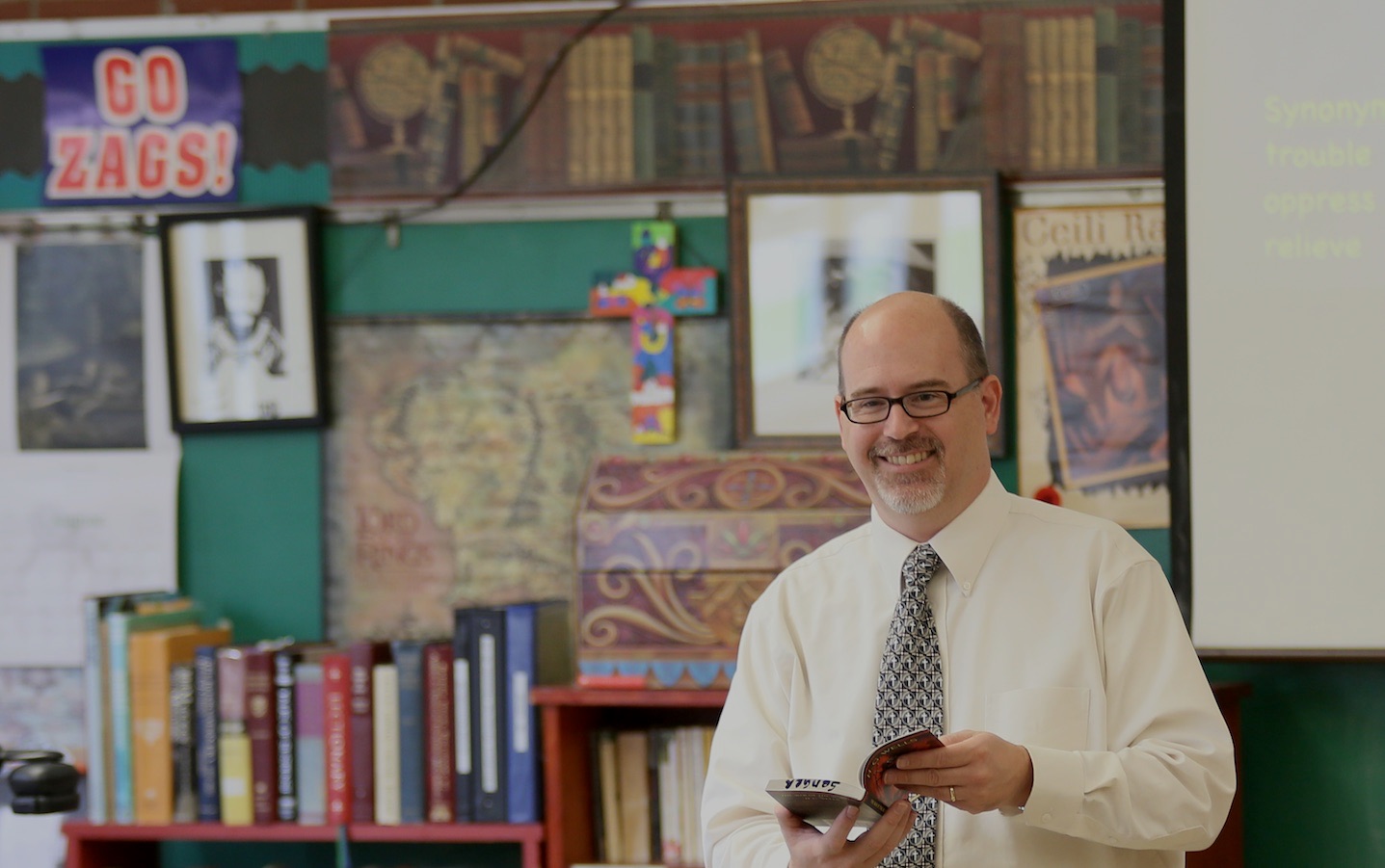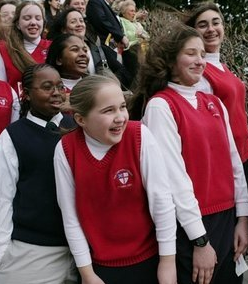This time of year, Catholic School Chronicle always gets visited by people looking for prayers to use on the first day of school. It’s been a couple of years since we posted this prayer, so it’s time for some more. The following two prayers are adapted from prayers written by Dolores Curran. The originals can be found in Curran’s book Family Prayer.
Parent-Teacher-Student Litany
Leader: Dear God of all creation, thank you for the marvelous gift of learning. We beg you to hear our prayers for our school life. Come into our midst, into our minds and into our hearts.
(After each of the following petitions, all respond, “Hear our prayer, O Lord.”)
For school boards and superintendents,
For principals and secretaries,
For custodians and bus drivers,
For librarians and cooks,
For teachers and learners,
For buildings and playgrounds,
For budgets and books,
For parents and families,
For assignments and grades,
For field days and field trips,
For book reports and homework,
For kindergartners and school aides,
For first graders and reading teachers,
For second graders and music teachers,
For third graders and school nurses,
For fourth graders and room parents,
For fifth graders and speech therapists,
For sixth graders and playground supervisors,
For seventh graders and assistant principals,
For eighth graders and resource people,
For freshman and activity directors,
For sophomores and coaches,
For juniors and drama teachers,
For seniors and counselors,
Keep us all under your loving care this year, Lord, and teach us to love one another as we learn from one another.
(After each of the following petitions, all respond, “Pray for us.”)
Mary, mother of all students,
That we may all be what God wants us to be,
That we may accept the responsibilities of learning,
That we may support our schools and teachers,
That we may perceive, judge and act wisely,
That we may grow in age and grace,
That we may furnish educational hope for all,
That we may change the world,
That we may make new friends and keep old friends,
That we may be patient with our students and teachers,
That we may keep our school clean and pleasant,
Come, O Holy Spirit, and fill the hearts and minds of your faithful. Grant us faith, knowledge and perseverance so that we may go forth and spread the Good News. Amen.
A Prayer for the First Day of School
Teacher: As school begins, Mary, we put this year in your hands. We pray that our class will emerge in June more educated, more prayerful and more compassionate to others.
All: Please pray to Jesus for us, Mary.
Teacher: That all children everywhere will experience loving teachers and enlightening classes,
All: Please pray to Jesus for us, Mary.
Teacher: That the school year will be filled with good friends, exciting school activities, and God’s love,
All: Please pray to Jesus for us, Mary.
Teacher: That we have a minimum of illness, unfinished homework and unkind behavior,
All: Please pray to Jesus for us, Mary.
Teacher: That we help new students to feel welcome these first days of school,
All: Please pray to Jesus for us, Mary.
Teacher: That we notice and are grateful for the many blessings God gives us this year,
All: Please pray to Jesus for us, Mary. Hail Mary, full of grace, hear our prayer for a school year that will please your Son, educate us, and help us to fulfill God’s plan for us in his world. Amen.




 Teaching is a noble and essential profession, not only for society but also for the Church. In this third and final reflection on Brother Luke Grande’s book
Teaching is a noble and essential profession, not only for society but also for the Church. In this third and final reflection on Brother Luke Grande’s book 
 The beginning of a new school year can be chaotic, stressful and incredibly busy. Trying to fit prayer and meditation into the day can be difficult, but it’s exactly in these busy times that they’re most needed. Brother Luke Grande’s book
The beginning of a new school year can be chaotic, stressful and incredibly busy. Trying to fit prayer and meditation into the day can be difficult, but it’s exactly in these busy times that they’re most needed. Brother Luke Grande’s book